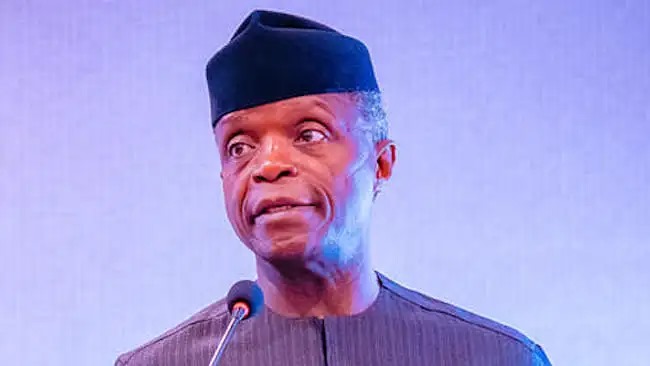Former Vice President of Nigeria, Yemi Osinbajo, delivered a powerful address at the 75th International Real Estate Federation World Real Estate Congress in Lagos, emphasizing the urgent need for a paradigm shift in the real estate sector. He underscored that housing, a fundamental human need, must transcend mere profit-seeking and embrace a profound social and civic responsibility. Osinbajo argued that the provision of shelter carries a moral weight akin to healthcare professionals dealing with matters of life and death. He implored real estate practitioners to view their profession not solely as a business venture, but as a critical service imbued with the obligation to address the pressing housing needs of the global population, especially in developing regions like Africa. He highlighted the stark reality of millions lacking decent housing and the escalating demand driven by population growth, urging the industry to prioritize affordability and accessibility.
Osinbajo painted a vivid picture of the challenges facing Africa’s rapidly urbanizing landscape. With a projected urban population exceeding 60% by 2050, the continent grapples with a staggering housing deficit of over 50 million units. This existing shortage is compounded by the dual crises of climate change and conflict, which continually decimate housing stock while simultaneously hindering replenishment efforts. He stressed that the convergence of these factors necessitates a proactive and innovative approach towards sustainable housing solutions that can withstand environmental pressures and contribute to building resilient communities. The former Vice President advocated for a conceptual shift, positioning housing not as a luxury or mere commodity, but as a fundamental human right intrinsically linked to dignity, stability, and opportunity.
Osinbajo’s call for a socially conscious real estate sector resonated deeply with the congress’s theme of sustainability and inclusivity. He challenged practitioners to envision themselves as architects of a better future, shaping communities that are not only aesthetically pleasing but also equitable and resilient. He implored them to move beyond simply constructing buildings and instead focus on creating spaces that foster human flourishing and societal progress. This vision extends beyond providing physical structures; it encompasses the creation of environments that promote social cohesion, economic empowerment, and a sense of belonging. The former Vice President argued that the true measure of success in real estate should not be solely based on profits, but on the positive impact it has on the lives and communities it serves.
The urgent need for sustainable housing practices becomes even more apparent when considering Nigeria’s rapid population growth. With an annual increase of six million people, equivalent to adding a country the size of Liberia each year, the demand for housing is escalating dramatically. This demographic surge underscores the magnitude of the challenge and the necessity for innovative solutions. The conventional approach to housing development, often prioritizing profit maximization, is simply unsustainable in the face of such rapid growth. The former Vice President urged a departure from this model, emphasizing the critical role of the real estate industry in contributing to national development and social stability by prioritizing affordable and accessible housing for all. He called for a collaborative effort between the government, private sector, and communities to address this pressing need.
Osinbajo’s call for a more equitable and sustainable approach to real estate was echoed by other prominent figures at the congress. Akin Opatola, President of FIABCI Nigeria, reiterated that real estate is ultimately about people and their progress, not just bricks and mortar. He emphasized the role of the sector in shaping the future of cities and communities. Lagos, as a rapidly developing urban center, represents both a challenge and an opportunity. Its dynamic growth presents a unique platform for innovative housing solutions and sustainable urban development. Opatola stressed the importance of leveraging this potential to create a model for other cities in Africa and beyond.
Ramon Riera, FIABCI World President, reinforced this perspective, emphasizing the significance of the congress as a pivotal moment for both Africa and the global property market. He acknowledged Lagos as a fitting venue for exploring new ideas and driving progress towards a more inclusive and environmentally conscious future for the real estate industry. Riera’s remarks underscore the global relevance of the challenges and opportunities facing the real estate sector, particularly in rapidly urbanizing regions like Africa. The Lagos congress served as a platform for international collaboration and knowledge sharing, fostering a unified approach towards creating a more sustainable and equitable future for housing globally.


